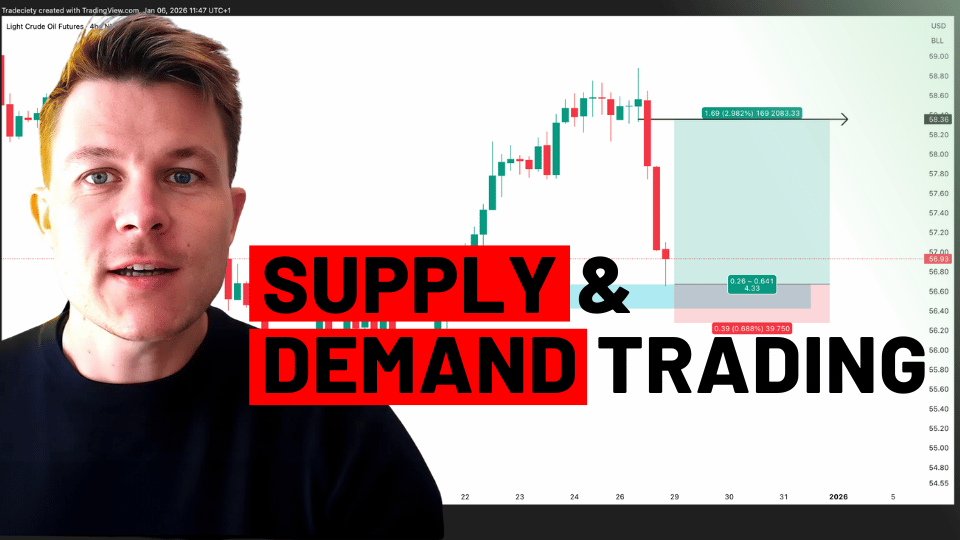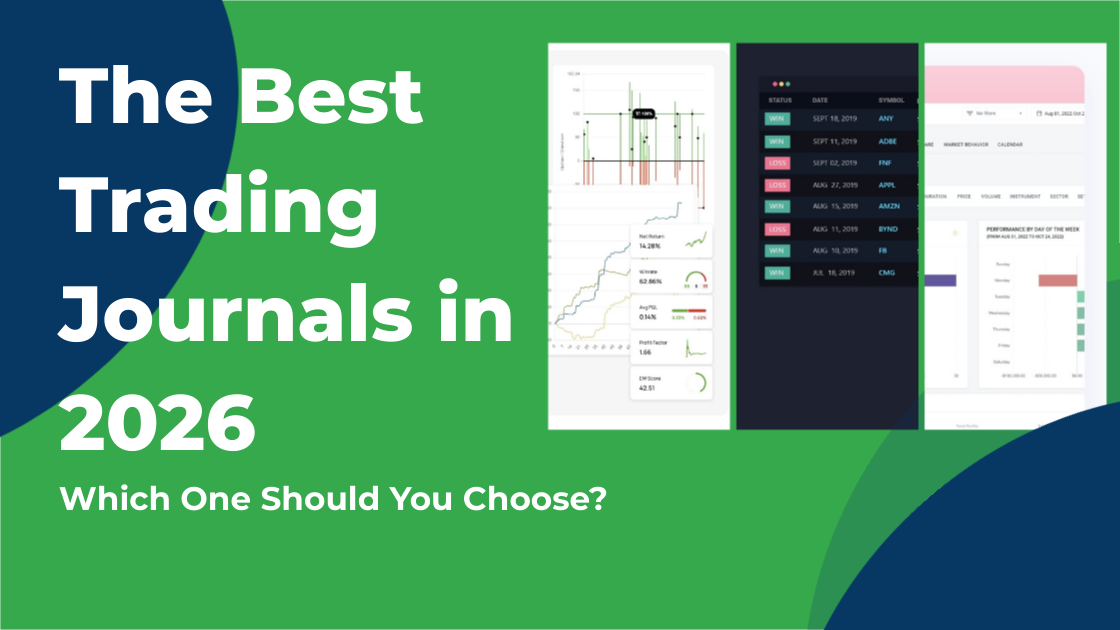Supply and Demand Trading in 2026
We have been trading supply and demand strategies for over ten years, and they have stood the test of time remarkably well. Supply and demand is...
5 min read
Rolf
Sep 25, 2016 8:00:00 PM

The problem in trading is that there is no surefire path to success whereas all our lives we are used to being told what to do and which steps to follow in order to get to where we want to go. From early on, we follow the advice of our parents, we listen to our teachers, we take the courses that we need, we study the books and topics that will be tested in the exam, we do the tasks our boss tells us to do and we follow the standard operating procedures.
Our society is a follower-society without a lot of free thinkers or autonomous doers. The majority of people are employees instead of self-employed, and even if people decide to become entrepreneurs themselves, the failure rate of new businesses is extremely high – not because it’s so hard, but because life hasn’t prepared us for independent thinking and working autonomously. But don’t get me wrong, there is nothing wrong with being employed to begin with – this article is just meant to highlight the problems for traders that come with a lack of independent thinking.
Being your own boss and ‘being able to do what you want’ sounds great and like a lot of freedom, but once it comes to being practical and putting in the work, although no one tells you what to do, that’s where the problems start. If you want to become a successful trader, you have to make sure to avoid the common problems below.
Being a trader is very similar to being self-employed when it comes to taking responsibility, working for yourself and creating a sustainable and profitable business. Here are the general problems that are typical for traders who lack the autonomous mindset:
This is a HUGE problem for many traders. Every day, you have many options what to do and how to spend your time while trading and being infront of the computer. Usually there are two categories of activities:
(1) the easy tasks that feel good and are fun, but don’t add a lot of value
(2) the harder tasks that require effort and more mental energy and will help you improve
Unfortunately, the things that are easy and effortless are rarely the things that help us become better traders. When it comes to trading, those things are: wasting screen time, randomly flipping through time frames, reading in forums, hunting for a new strategy, trying new indicators, hanging out in Twitter and arguing with other random traders or watching the financial news. All those things will create the illusion of busyness and make you feel productive, but they won’t help you become a better trader.
“Focus on being productive instead of busy.” – Tim Ferriss
The things that are harder and require more effort are: creating a watchlist, writing a trading plan, being clear about your trade checklist, journaling your past trades, keeping good and detailed records and reviewing old performance data. Only those things will really make a difference in your trading but very few people do them consistently.
Audit yourself and see how many of your daily activities fall into category (1) and how much time you spend with the more important tasks in category (2).
“Most people fail in life because they major in minor things.” – Tony Robbins
Most people like to be in the follower-position where they just execute what they are told to do – and there is nothing wrong with that. This minimizes the potential for errors, uncertainty and failure. At the same time, employees can’t usually completely fail and there is always a paycheck waiting for you at the end of the month, regardless of how good or bad you are.
In trading, there is no job security and no guaranteed paycheck. Your account balance is always brutally honest and you only get rewarded for good performance. And you might even end up losing money despite taking good trades and doing your best work, when the market isn’t working in your favor. Nobody ever said trading was fair 😉
Not everyone can handle this type of environment and not everyone is made to be paid by performance and exposed to variance. It’s important that you know yourself well enough and then make the right decision about your trading career.
“It is a painful thing to look at your own trouble and know that you yourself and no one else has made it.” Sophocles
When we are in school or college, it’s always easy to find someone else to blame: “our teacher didn’t tell us what to learn,” or “the majority of our class failed this exam too,” are common phrases when trying to justify failure. In our jobs, the same is true; we are quick to blame our boss, coworkers, an email that didn’t go through or some other circumstances.
Although traders also like to do that and then blame High-Frequency Trading, Algos, insider trading, central banks or their brokers, a lack of responsibility is the surest way to losing your account. In the end, no one forces you to enter a trade, to stick with that market, to stay in that trade, to remain with your broker or to trade around news events. Without acknowledging that YOU are the one that is screwing up, you can’t become a better trader because you will always look for excuses elsewhere to justify your bad trading behavior.
“The price of greatness is responsibility”.- Winston Churchill
When people, even after years, still lose money consistently in the markets, they are not seeing the world as it is anymore. When those people think that it’s just a matter of time until they find the right indicator or the right entry trick, they are doomed to keep losing forever.
It’s essential to objectively look at your trading performance and your development. If you still can’t make money after a few years and are not taking things seriously, you have no chance of becoming a pro trader. Go back and evaluate whether you are still just doing the easy and fun tasks and which activities from the ‘hard and necessary’ group you should be doing.
As a trader or as an entrepreneur, YOU are the one who has to decide what he is going to do, how he spends his days and how to maneuver your business/trading. The worst thing you can do is to seek outside advice and rely on somebody else’ opinion.
You might see me on Twitter, in forums or in our trading group chat, but whenever someone else talks about a trade or a chart, I stop listening. I don’t care how anyone views a chart, what your opinions are about a market or how you trade. At the same time, I don’t care what you think about my trading or my analysis.
The only thing that matters to me are that: (1) I only take the trades that I should be in according to my rules and (2) that I follow my plan. Listening to someone else can easily create doubts, worries and second guessing. As a trader, you can’t hesitate and you have to follow YOUR own path because only you have to live with the consequences. And, of course, if we make decisions based on someone else’s opinions, it’s easy to give away responsibility as we said above.
“Never complain, never explain. Resist the temptation to defend yourself or make excuses.” ― Brian Tracy
Part-time traders who are still trying to make their own path and are trying to become consistently profitable traders are most vulnerable to all those problems. It is, therefore, even more important that you are conscious about how you approach trading and if you are violating any of the points discussed above.
At the same time, you can eliminate a lot of the pressure that comes from full-time trading when you still have a day job that pays the bills. However, you have to make sure that you are taking trading seriously enough and not just see it as a hobby.
Here is my checklist that can show you immediately where you are with your trading right now.

We have been trading supply and demand strategies for over ten years, and they have stood the test of time remarkably well. Supply and demand is...

3 min read
Choosing the right trading journal is essential for traders wanting to analyze performance, refine strategies, and improve consistency. In this...

3 min read
“95% of all traders fail” is the most commonly used trading related statistic around the internet. But no research paper exists that proves this...